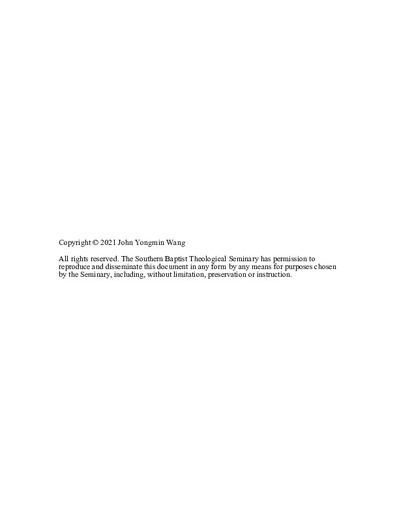| dc.description.abstract | The cultural aspects of guilt/innocence, shame/honor, and fear/power have received much attention since the twentieth century. While theologians in Western contexts have considered the guilt/innocence aspect and missiologists have researched the shame/honor aspect in missiological contexts, scholars have located the fear/power aspect primarily in animistic cultures.The purpose of this dissertation is to extend the consideration of the aspect of fear to all cultures in the contexts of evangelism and missions. To achieve this goal, I will examine: (1) What do the Old and New Testaments teach about fear? (2) How has the church approached and managed fear in the context of evangelism and missions? (3) What changes would be necessary to supplement existing evangelistic methods in consideration of the aspect of fear? (4) What are the missiological implications of this study? Additionally, I will attempt to identify proper opposite values of fear, instead of power, to manage various types of fear.
Fear is a significant theme in the Bible, where fearing God plays an essential role for God’s people to conquer other fears, and authority appears to be better than power as an aspirational value against fear in the context of evangelism and missions. Scholars have significantly studied fear in individual and social contexts and have identified three major strategies to overcome these fears: mitigation, denial, and diversion. As an attempt to begin considering fear in all types of cultures in the context of evangelism and missions, I examine five gospel presentation methods through the lens of fear and suggest that Christians must acknowledge some key elements of the gospel in relation to fear to present the gospel to those who fear in all cultures.
I offer missiological implications: First, consider fear as an addendum to each of shame and guilt in non-animistic cultures. Second, fear impacts people through folk beliefs and sociopolitical fears. The presence of folk beliefs affecting people’s faith and the growing perception of sociopolitical fears calls for the need to consider the aspect of fear/authority. I provide suggestions to cultivate the fear of God and consider the aspect of fear in all cultures. | en_US |

